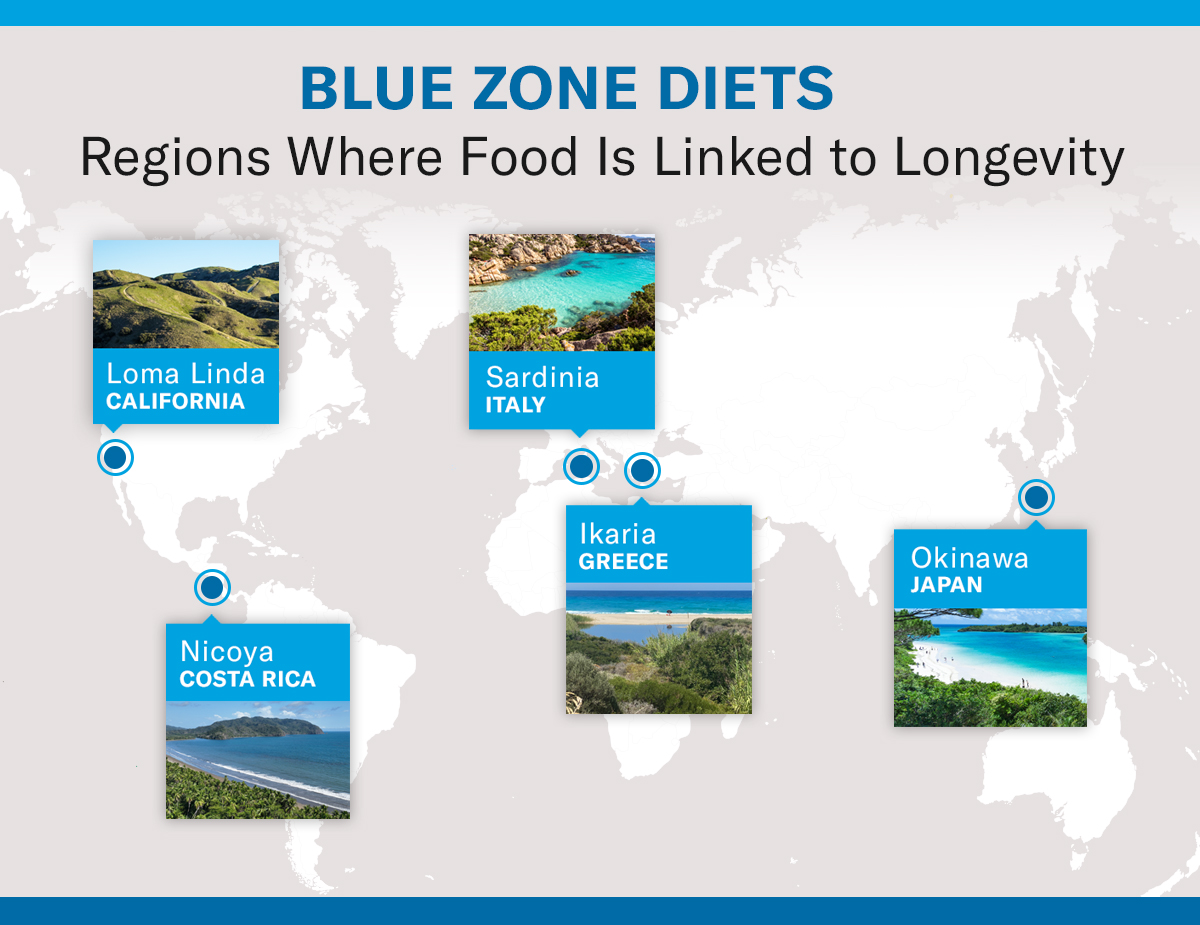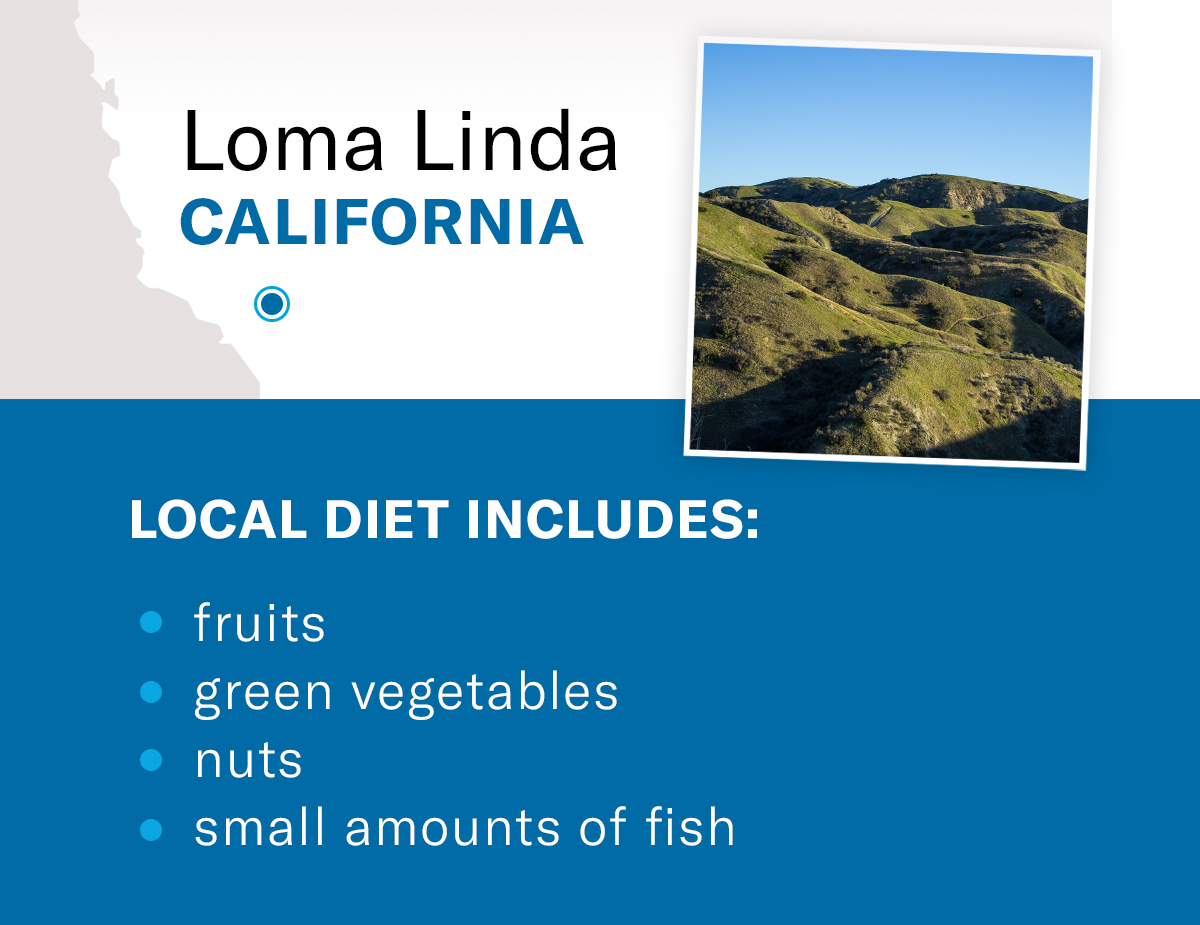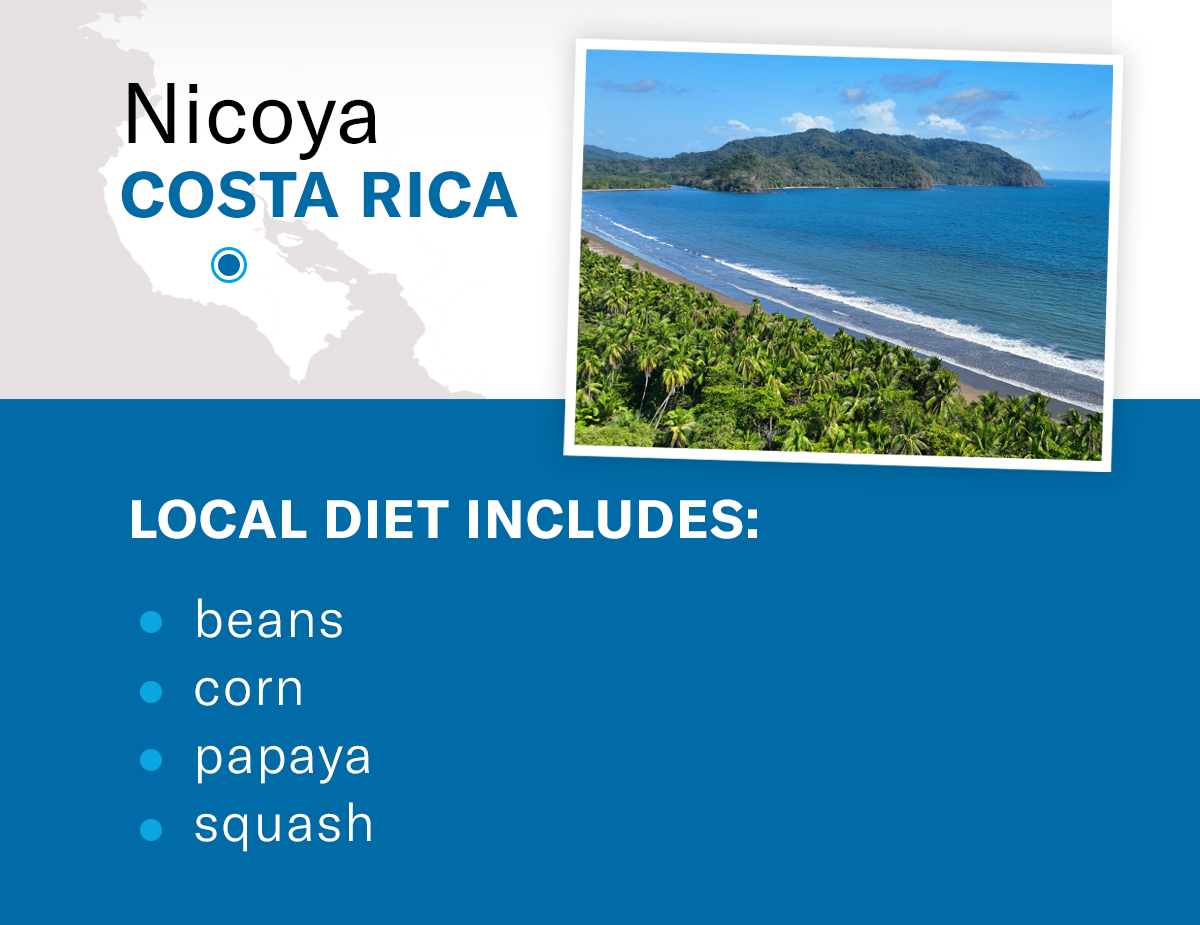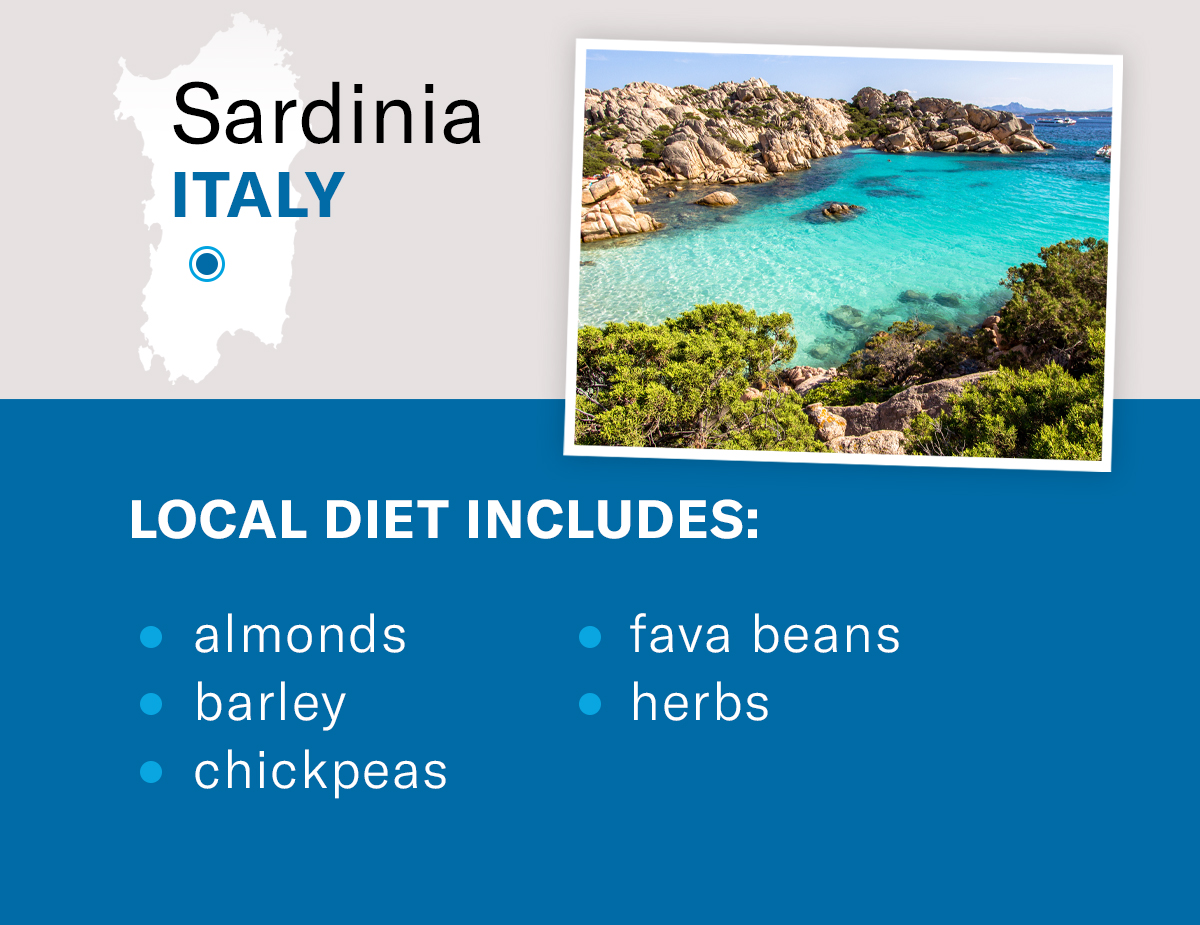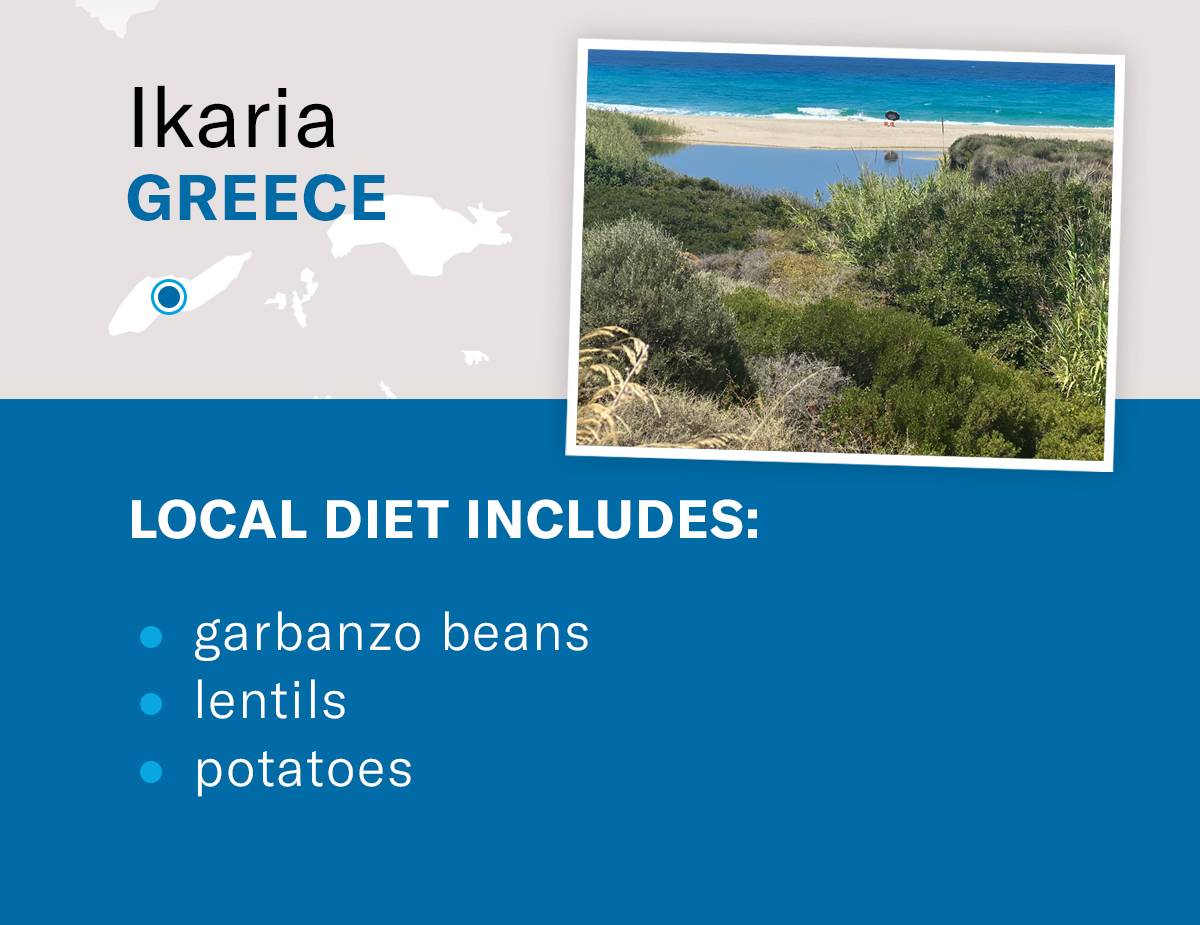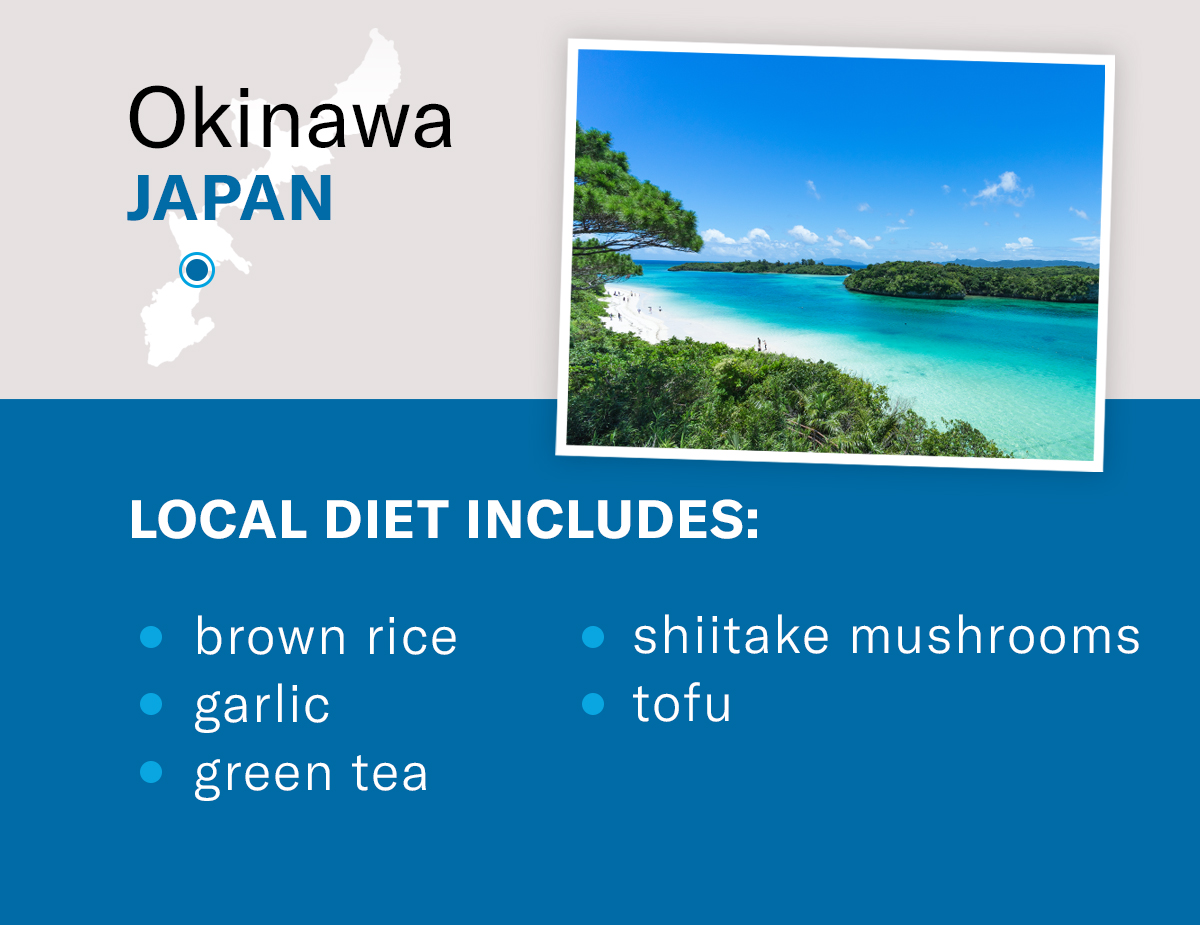How the Blue Zones and Mediterranean Diets May be Linked to Longevity
An integrative medicine physician explains the foods that may be the keys to a longer, healthier life.
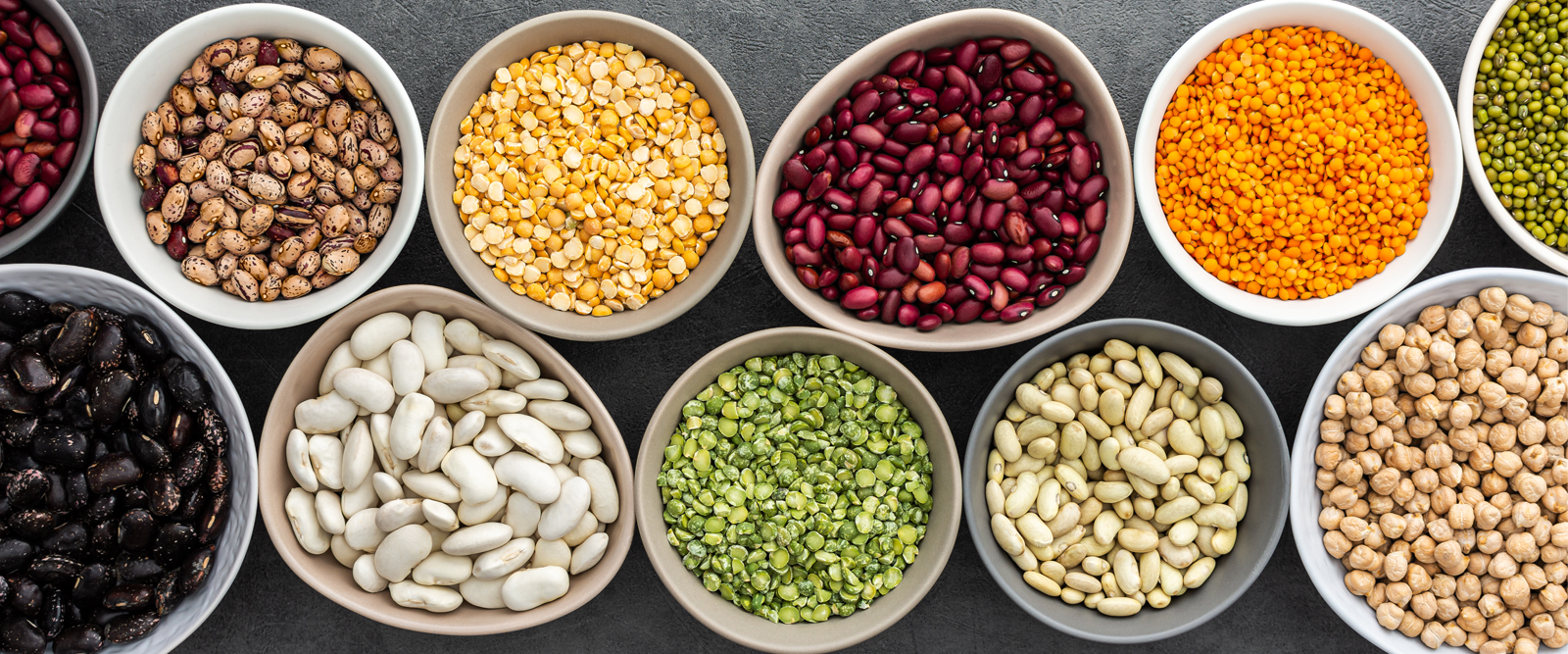
Is the secret to living to 100 in what we eat? According to Dr. Michelle H. Loy, an integrative medicine physician at NewYork-Presbyterian/Weill Cornell Medical Center, what we consume, and how much of it, can in fact improve longevity. The scientific evidence lies in regions of the world called the Blue Zones, which have the highest percentage of centenarians. People who live in the five Blue Zones – Okinawa, Japan; Sardinia, Italy; Nicoya, Costa Rica; Ikaria, Greece; and Loma Linda, California, in the U.S. — all share similar eating habits and live longer.
The same can be found in countries by the Mediterranean Sea, such as Italy and Greece. The Mediterranean diet is associated with better health in a myriad of ways: People living in these places, for example, were found to have lower rates of cardiovascular disease and cancer.
Dr. Loy spoke with Health Matters about the Blue Zones and Mediterranean diets, their health benefits, and what to keep in mind when you follow them.

Dr. Michelle H. Loy
What foods are most important in the Blue Zones and Mediterranean diets?
Dr. Loy: I want to emphasize beans and legumes — almost every diet has them in some form or another. One study found that legumes are the most important dietary predictor of survival in older people of different ethnicities.
The Blue Zones dietary pattern is plant-forward, which means it includes fruits, vegetables, nuts, legumes, and whole grains. Meat is eaten about five times a month, if at all. In addition, people who live in Blue Zones eat until they are 80% full, and some of them regularly have one or two small glasses of red wine per day, often with a meal and with friends.
The Mediterranean diet consists of a high intake of vegetables, fruits, nuts, olive oil, and legumes, a glass or two of wine, and limited consumption of meat. Cereal grains and fish are also included.
What are the health benefits of the Blue Zones and Mediterranean diets?
There’s a lot of scientific support for the health benefits of the Mediterranean and Blue Zone diets, specifically for heart health. One study found that the Mediterranean diet reduced cardiovascular events, such as myocardial infarctions, strokes, or death from heart causes, in high-risk patients without cardiovascular disease by approximately 30%. Another showed that the Mediterranean diet had a 50% to 70% lower risk of recurrent heart disease.
The ingredients in the foods also improve health. For example, Omega-3 — a healthy fat found in fish, nuts and seeds — benefits the heart, brain, and metabolism. And polyphenols, which are antioxidants present in fruits and vegetables, can help manage blood pressure levels and reduce chronic inflammation, among other benefits. A recent study found that polyphenols may help increase longevity by combating diseases associated with aging, like type 2 diabetes and cardiovascular disease.
Wine is part of the diet, but is having alcohol that regularly safe?
Research has shown that the safest level of drinking is none. Addictive substances such as tobacco and alcohol increase the risk of cancer, heart disease, and more. While it is better not to start drinking alcohol, if you do consume alcohol, the current recommendation is to limit it to two servings a day for men and one serving a day for women. Emerging evidence suggests that even drinking within the recommended limits may increase the overall risk of several types of cancer and some forms of cardiovascular disease.
Also, an important consideration is lifestyle. Sometimes drinking is accompanied by smoking, poor diet, lack of exercise, or obesity. Context matters. Evidence does not support drinking alcohol for the sake of health, but limited intake of alcohol may take place in the context of a generally healthful lifestyle and healthy weight.
What would you say to someone who wants to change their diet?
Try to make one little change, not change everything all at once. A lot of times I will ask people, ‘What is your favorite food? What is your favorite meal?’ and then we figure out how to make a swap that tastes good and is healthy. Also, herbs and spices — such as parsley, sage, rosemary, basil, thyme, and dill, as well as garlic, turmeric, and ginger — are one of the easiest ways to add polyphenols to a diet.
Lastly, a healthy diet is not the only factor for longevity. People who live in Blue Zones are physically active every day, they cook their own food, and, importantly, they have social connections. They are surrounded by others who are also invested in being healthy.
Michelle H. Loy, M.D., an integrative medicine and wellness specialist at NewYork-Presbyterian/Weill Cornell Medicine, focuses on the use of nutrition, movement, and mind-body lifestyle medicine in the prevention and management of chronic illnesses. She also has training in human nutrition/obesity, medical hypnosis, mind and body stress reduction, and yoga for medical conditions.
As an assistant professor with joint appointments in medicine and pediatrics, Dr. Loy’s dedication and commitment to the didactic and clinical training of the healthcare and physician leaders of the future will continue. She is passionate about supporting fellow physicians and physicians-in-training in self-reflection and healthy self-care. Her clinical and research interests include nutrition, particularly culinary medicine; acupuncture (pediatric and adult); stress management/mental health; botanical medicine; and cancer prevention/recovery.
Dr. Loy has achieved recognition in integrative medicine at national academic conferences and other peer-reviewed training opportunities. She is a Fellow of the American Academy of Pediatrics, a member of the AAP Section of Integrative Medicine and the Society of Integrative Oncology, and a chapter leader for Walk with a Doc.
Additional Resources
Learn more about the Integrative Health and Wellbeing Program at NewYork-Presbyterian/Weill Cornell Meddical Center.

